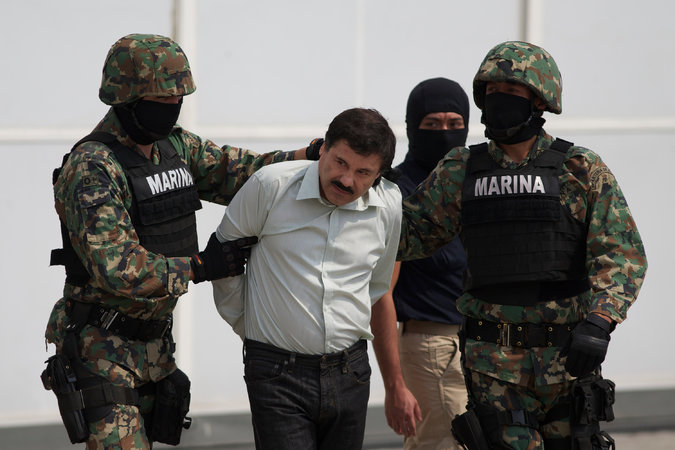News reports began to appear early Saturday of this capture in the Mexican Pacific coastal town of Mazatlan. Units of the Mexican Marines took Guzman without shots fired along with other men and women and one baby. Photos showed scratches to the face but not substantial injury. Guzman was flown to Mexico City for identification and is held there. Mexican newspapers as well as the Associated Press report that Mexican officials were aided by two American groups, the DEA and the Marshals Service. It is presumed that Guzman was tracked electronically for several years by American law enforcement as he grew the size and sophistication of the Sinaloa Cartel.
The capture will likely have these implications:
- It comes just after a meeting in Toluca on Thursday, February 20, of the Mexican President, Pena Nieto, with the President of the United States and the Premier of Canada. This will serve to enhance the prestige of Pena Nieto in his counterparts’ eyes and perhaps to the Mexican people. The North American alliance for trade, NAFTA, begun in the 1990s has transformed Mexico from a rural population to one of large urban centers, increased its trade with the United States, but has been inadequate to the employment needs of Mexico and with jobs such as those in auto assembly paying only a fraction of those paid in the United States or Canada.
- Its impact on the population of Mexico bears consideration as “El Chapo” has become a folk hero, a “Robin Hood” in many parts of the country and will likely assume a role in the narcoreligion like that of Jesus Malverde or Santa Muerte. His escape from a Federal high security prison in 2001 and the possible efforts to bring him to trial in the United States could further enhance his notoriety with Mexican peasants and youth.
- If it appears that this capture was orchestrated or heavily assisted by American authorities, it will inflame leftist groups in Mexico that have long contended that their country is subjected to “CIA influence”. Statements by Americans that he should be brought to Los Angeles or Chicago to be tried and that American justice is more assured than Mexican feed into a dangerous game.
- It is unlikely to mean the end of the Sinaloa Cartel. The size and profitability of that enterprise means that a complex of people and commands exist in Sinaloa, at plazas coming into the United States, associates in China, Columbia, Europe and the United States that will function in the absence of Guzman. It may mean more violence in Sinaloa as underlings fight for succession positions. The metaphor of “cutting the head off the snake” may not be as helpful as seeing it as a situation that perhaps furthers the “metastasis” to many centers in the Sinaloa group.
- It may mean more violence in American border cities as this may serve to “level the playing field” in Tijuana and Juarez where Sinaloa operatives have appeared to have bested other Cartels for control or in Nuevo Laredo where a four-sided contest has been underway for several years among the Mexican government, the Gulf Cartel, the Zetas and Sinaloa. It should not lessen the flow of drugs along national corridors such as IH 35 but may rather increase the violence and unpredictability. The strength and influence of groups like the Sinaloa Cartel is not from the personality of a leader but rather a reflection of the characteristics of the state, itself, in this case, Mexico.
Winston Churchill said in a broadcast in 1939 to the British people speaking of Russia that it was “a riddle, wrapped in a mystery, inside an enigma…” That seems a good fit to describe events now in Mexico. With Ukraine, Syria, Egypt, Thailand, Venezuela, Argentina, Libya all in some stages of dissolution, we are advised not to neglect events to our south or look for simple solutions.
